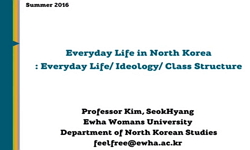Background: This is a subgroup analysis of Korean patients from a phase 3 clinical trial investigating the efficacy and safety of ipragliflozin in patients with type 2 diabetes mellitus inadequately controlled with metformin. Methods: This multicenter...
http://chineseinput.net/에서 pinyin(병음)방식으로 중국어를 변환할 수 있습니다.
변환된 중국어를 복사하여 사용하시면 됩니다.
- 中文 을 입력하시려면 zhongwen을 입력하시고 space를누르시면됩니다.
- 北京 을 입력하시려면 beijing을 입력하시고 space를 누르시면 됩니다.



Addition of Ipragliflozin to Metformin Treatment in Korean Patients with Type 2 Diabetes Mellitus: Subgroup Analysis of a Phase 3 Trial
한글로보기https://www.riss.kr/link?id=A103553353
-
저자
민경완 (을지대학교) ; 구본정 (충남대학교) ; 이지현 (대구가톨릭대학교) ; 김민선 (울산대학교) ; 안규정 (경희대학교) ; 이문규 (성균관대학교) ; Satoshi Kokubo (Astellas Pharma Inc) ; Satoshi Yoshida (Astellas Pharma Inc) ; 조현지 (아스텔라스) ; 차봉수 (연세대학교)
- 발행기관
- 학술지명
- 권호사항
-
발행연도
2017
-
작성언어
English
- 주제어
-
등재정보
KCI등재,SCOPUS,SCIE
-
자료형태
학술저널
- 발행기관 URL
-
수록면
135-145(11쪽)
-
KCI 피인용횟수
10
- DOI식별코드
- 제공처
-
0
상세조회 -
0
다운로드
부가정보
다국어 초록 (Multilingual Abstract)
Methods: This multicenter, placebo-controlled, double-blind, parallel-group study was carried out between November 2011 and January 2013. Patients entered a 2-week placebo pretreatment period, followed by a 24-week treatment period with either ipragliflozin (50 mg/day) or placebo, while continuing metformin. Efficacy outcomes (glycosylated hemoglobin [HbA1c], fasting plasma glucose [FPG], and body weight) and safety outcomes (treatment-emergent adverse events [TEAEs]) were measured and compared between the two treatment groups for patients enrolled in all 18 study sites in Korea.
Results: Eighty-two Korean patients received ipragliflozin (n=43) or placebo (n=39) during the study period. Mean changes in HbA1c levels from baseline to the end of treatment were –0.97% in the ipragliflozin group and –0.31% in the placebo group, with an adjusted between-group difference of –0.60% (P<0.001). Compared to placebo, FPG and body weight also decreased significantly (both P<0.001) from baseline after treatment in the ipragliflozin group, with between-group differences of –21.4 mg/dL and –1.53 kg, respectively. Decreased weight was the most common TEAE in the ipragliflozin group (7.0%); there were no reports of genital and urinary tract infection.
Conclusion: Ipragliflozin treatment in addition to metformin led to significant improvement in glycemic outcomes and reduction in body weight in Korean patients with type 2 diabetes mellitus, compared with metformin treatment alone; the safety profile was comparable in both groups.
Background: This is a subgroup analysis of Korean patients from a phase 3 clinical trial investigating the efficacy and safety of ipragliflozin in patients with type 2 diabetes mellitus inadequately controlled with metformin.
Methods: This multicenter, placebo-controlled, double-blind, parallel-group study was carried out between November 2011 and January 2013. Patients entered a 2-week placebo pretreatment period, followed by a 24-week treatment period with either ipragliflozin (50 mg/day) or placebo, while continuing metformin. Efficacy outcomes (glycosylated hemoglobin [HbA1c], fasting plasma glucose [FPG], and body weight) and safety outcomes (treatment-emergent adverse events [TEAEs]) were measured and compared between the two treatment groups for patients enrolled in all 18 study sites in Korea.
Results: Eighty-two Korean patients received ipragliflozin (n=43) or placebo (n=39) during the study period. Mean changes in HbA1c levels from baseline to the end of treatment were –0.97% in the ipragliflozin group and –0.31% in the placebo group, with an adjusted between-group difference of –0.60% (P<0.001). Compared to placebo, FPG and body weight also decreased significantly (both P<0.001) from baseline after treatment in the ipragliflozin group, with between-group differences of –21.4 mg/dL and –1.53 kg, respectively. Decreased weight was the most common TEAE in the ipragliflozin group (7.0%); there were no reports of genital and urinary tract infection.
Conclusion: Ipragliflozin treatment in addition to metformin led to significant improvement in glycemic outcomes and reduction in body weight in Korean patients with type 2 diabetes mellitus, compared with metformin treatment alone; the safety profile was comparable in both groups.
참고문헌 (Reference)
1 Halban PA, "β-Cell failure in type 2 diabetes: postulated mechanisms and prospects for prevention and treatment" 37 : 1751-1758, 2014
2 Korean Diabetes Association, "Treatment guideline for diabetes. 5th ed"
3 Abdullah N, "The architecture of risk for type 2 diabetes: understanding Asia in the context of global findings" 2014 : 593982-, 2014
4 김대중, "The Epidemiology of Diabetes in Korea" 대한당뇨병학회 35 (35): 303-308, 2011
5 Wright EM, "Renal Na(+)-glucose cotransporters" 280 : F10-18, 2001
6 Kashiwagi A, "Randomized, placebo-controlled, double-blind glycemic control trial of novel sodium-dependent glucose cotransporter 2 inhibitor ipragliflozin in Japanese patients with type 2 diabetes mellitus" 5 : 382-391, 2014
7 Inzucchi SE, "Management of hyperglycemia in type 2 diabetes, 2015: a patient-centered approach: update to a position statement of the American Diabetes Association and the European Association for the Study of Diabetes" 38 : 140-149, 2015
8 Korean Diabetes Association, "Korean diabetes fact sheet 2015"
9 Hedrington MS, "Ipragliflozin, a sodium-glucose cotransporter 2 inhibitor, in the treatment of type 2 diabetes" 11 : 613-623, 2015
10 Kashiwagi A, "Ipragliflozin in combination with metformin for the treatment of Japanese patients with type 2 diabetes: ILLUMINATE, a randomized, double-blind, placebo-controlled study" 17 : 304-308, 2015
1 Halban PA, "β-Cell failure in type 2 diabetes: postulated mechanisms and prospects for prevention and treatment" 37 : 1751-1758, 2014
2 Korean Diabetes Association, "Treatment guideline for diabetes. 5th ed"
3 Abdullah N, "The architecture of risk for type 2 diabetes: understanding Asia in the context of global findings" 2014 : 593982-, 2014
4 김대중, "The Epidemiology of Diabetes in Korea" 대한당뇨병학회 35 (35): 303-308, 2011
5 Wright EM, "Renal Na(+)-glucose cotransporters" 280 : F10-18, 2001
6 Kashiwagi A, "Randomized, placebo-controlled, double-blind glycemic control trial of novel sodium-dependent glucose cotransporter 2 inhibitor ipragliflozin in Japanese patients with type 2 diabetes mellitus" 5 : 382-391, 2014
7 Inzucchi SE, "Management of hyperglycemia in type 2 diabetes, 2015: a patient-centered approach: update to a position statement of the American Diabetes Association and the European Association for the Study of Diabetes" 38 : 140-149, 2015
8 Korean Diabetes Association, "Korean diabetes fact sheet 2015"
9 Hedrington MS, "Ipragliflozin, a sodium-glucose cotransporter 2 inhibitor, in the treatment of type 2 diabetes" 11 : 613-623, 2015
10 Kashiwagi A, "Ipragliflozin in combination with metformin for the treatment of Japanese patients with type 2 diabetes: ILLUMINATE, a randomized, double-blind, placebo-controlled study" 17 : 304-308, 2015
11 Kashiwagi A, "Ipragliflozin improves glycemic control in Japanese patients with type 2 diabetes mellitus: the BRIGHTEN study" 6 : 8-18, 2015
12 Kurosaki E, "Ipragliflozin and other sodium-glucose cotransporter-2 (SGLT2) inhibitors in the treatment of type 2 diabetes: preclinical and clinical data" 139 : 51-59, 2013
13 Lu CH, "Efficacy, safety, and tolerability of ipragliflozin in Asian patients with type 2 diabetes mellitus and inadequate glycemic control with metformin: results of a phase 3 randomized, placebo-controlled, double-blind, multicenter trial" 7 : 366-373, 2016
14 Wilding JP, "Efficacy and safety of ipragliflozin in patients with type 2 diabetes inadequately controlled on metformin: a dosefinding study" 15 : 403-409, 2013
15 Yang W, "Efficacy and safety of dapagliflozin in Asian patients with type 2 diabetes after metformin failure: a randomized controlled trial" 8 : 796-808, 2016
16 Cefalu WT, "Efficacy and safety of canagliflozin versus glimepiride in patients with type 2 diabetes inadequately controlled with metformin (CANTATA-SU):52 week results from a randomised, double-blind, phase 3 noninferiority trial" 382 : 941-950, 2013
17 Baker WL, "Effects of sodium-glucose co-transporter 2 inhibitors on blood pressure: a systematic review and meta-analysis" 8 : 262-275, 2014
18 Yoon YS, "Differences in the associations of anthropometric measures with insulin resistance and type 2 diabetes mellitus between Korean and US populations: comparisons of representative nationwide sample data" 10 : 642-651, 2016
19 Chan JC, "Diabetes in Asia: epidemiology, risk factors, and pathophysiology" 301 : 2129-2140, 2009
20 Kaku K, "Dapagliflozin as monotherapy or combination therapy in Japanese patients with type 2 diabetes: an open-label study" 5 : 415-433, 2014
21 Ji L, "Dapagliflozin as monotherapy in drug-naive Asian patients with type 2 diabetes mellitus: a randomized, blinded, prospective phase III study" 36 : 84-100.e9, 2014
22 Ridderstrale M, "Comparison of empagliflozin and glimepiride as add-on to metformin in patients with type 2 diabetes: a 104-week randomised, active-controlled, double-blind, phase 3 trial" 2 : 691-700, 2014
23 Kim DJ, "Clinical characteristics of Korean type 2 diabetic patients in 2005" 77 (77): S252-257, 2007
24 Fonseca VA, "Active- and placebo-controlled dose-finding study to assess the efficacy, safety, and tolerability of multiple doses of ipragliflozin in patients with type 2 diabetes mellitus" 27 : 268-273, 2013
동일학술지(권/호) 다른 논문
-
Lipid Abnormalities in Type 2 Diabetes Mellitus Patients with Overt Nephropathy
- 대한당뇨병학회
- Sabitha Palazhy
- 2017
- KCI등재,SCOPUS,SCIE
-
Association between Blood Mercury Level and Visceral Adiposity in Adults
- 대한당뇨병학회
- 박종숙
- 2017
- KCI등재,SCOPUS,SCIE
-
Regulating Hypothalamus Gene Expression in Food Intake: Dietary Composition or Calorie Density?
- 대한당뇨병학회
- 장미
- 2017
- KCI등재,SCOPUS,SCIE
-
Role of NO/VASP Signaling Pathway against Obesity- Related Inflammation and Insulin Resistance
- 대한당뇨병학회
- 강유미
- 2017
- KCI등재,SCOPUS,SCIE
분석정보
인용정보 인용지수 설명보기
학술지 이력
| 연월일 | 이력구분 | 이력상세 | 등재구분 |
|---|---|---|---|
| 2023 | 평가예정 | 해외DB학술지평가 신청대상 (해외등재 학술지 평가) | |
| 2020-01-01 | 평가 | 등재학술지 유지 (해외등재 학술지 평가) |  |
| 2017-12-01 | 평가 | SCIE 등재 (기타) |  |
| 2011-05-30 | 학술지명변경 | 한글명 : KOREAN DIABETES JOURNAL -> Diabetes and Metabolism Journal |  |
| 2011-01-01 | 평가 | 등재학술지 유지 (등재유지) |  |
| 2009-01-01 | 평가 | 등재학술지 유지 (등재유지) |  |
| 2006-01-01 | 평가 | 등재학술지 선정 (등재후보2차) |  |
| 2005-01-01 | 평가 | 등재후보 1차 PASS (등재후보1차) |  |
| 2004-01-01 | 평가 | 등재후보학술지 유지 (등재후보1차) |  |
| 2003-01-01 | 평가 | 등재후보학술지 유지 (등재후보1차) |  |
| 2002-01-01 | 평가 | 등재후보학술지 유지 (등재후보1차) |  |
| 2000-07-01 | 평가 | 등재후보학술지 선정 (신규평가) |  |
학술지 인용정보
| 기준연도 | WOS-KCI 통합IF(2년) | KCIF(2년) | KCIF(3년) |
|---|---|---|---|
| 2016 | 0.55 | 0.55 | 0.55 |
| KCIF(4년) | KCIF(5년) | 중심성지수(3년) | 즉시성지수 |
| 0.49 | 0.5 | 1.018 | 0.21 |




 KCI
KCI






